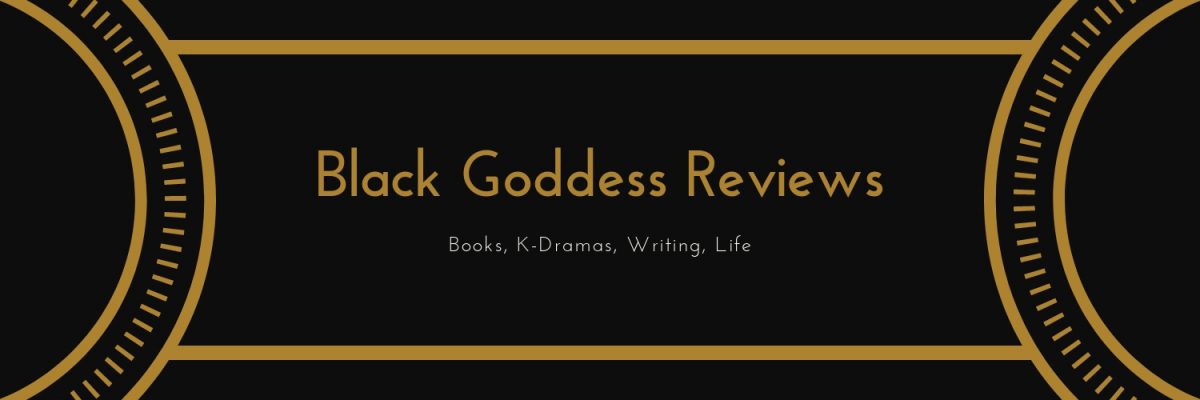I don’t know why, but I rarely give 5 stars to non-fiction books, so they don’t usually make it onto my end of year favourite reads list. This year I decided to make a dedicated list instead, because there are so many great non-fiction books out there, and I would love to share some of them with you.
All links in the titles are to my reviews (if I actually got around to writing them…)
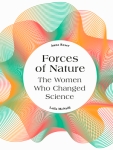
Forces of Nature: The Women Who Changed Science by Anna Reser
Forces of Nature was a fantastic look at women in science throughout history. It covers a wide range of disciplines, such as physics, chemistry, astronomy, and botany. It focuses on a couple women in each field, and provides a biography of them. But it also delves deeper, looking at barriers to women’s participation, and the ways women got around them and distinguished themselves. Oftentimes they were well known in their own time, but erased from history. It has tons of wonderful illustrations, and is extremely well-researched. The writing might be a bit on the academic side for some, but it is fantastic foray into women’s history. My only critique would be that I would have liked more examples from a non-Western background.

Dear Leader by Jang Jin-Sung
I really had no idea what I was going into when I read this. It was really just to mark off a challenge prompt (for a readathon I never finished, and can’t remember the name of.) But once I started I was completely hooked. The narrative is non-linear, jumping back and forward between Jang’s life in North Korea, and his harrowing escape across the border into China. What makes it particularly fascinating is Jang’s position in the government.. He was able to describe the process of re-writing history, and the importance of misinformation to the dictatorship. His escape were nothing short of a miracle, and really had a lot to do with luck. That being said, he was a defector with a lot of intel, so he was considered a valuable asset to the South Korean government. North Koreans in less privileged positions were a lot less lucky than Jang, and hearing their stories really affected him. Honestly, a brilliant read if you’re interested in what North Korea is like.

Inconspicuous Consumption: The Environmental Impact You Don’t Know You Have by Tatiana Schlossberg
This book blew me away, because it actually showed me tangible examples of how I personally am contributing to climate change and environmental pollution. It talks about everything from the internet, and how much water it takes to cool down all those servers that hold ‘the cloud’. It talks about how many litres of water it takes to make a single pair of jeans (way more than you’d imagine.) It even looks at the Valentine Day flower industry. I cannot stress enough how important this book is.
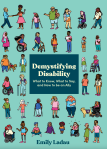
Demystifying Disability: What to Know, What to Say, and How to be an Ally by Emily Ladau
Demystifying Disability is basically a primer of how to interact with disabled people, and being a good ally. There wasn’t much new ground covered for me personally, because I am disabled, and it seems like common sense to me. But I think it would really help abled people who aren’t quite sure what to say, or how to act around disabled folk. It talks a bit about the history of disability and equal rights in the United States, but it also talks about basic etiquette (like what NOT to say.) It’s fairly short, and written in an engaging and accessible style.
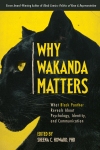
I’m a bit of a nerd. I like sci-fi movies, and I love reading essays. And this brought two of my loves together. I loved Black Panther from the moment it started playing in the cinema. It’s probably my favourite Marvel movie ever. I got emotional chills, so I knew I had to give this book a go, and it did not fail me. Why Wakanda Matters is an excellent selection of essays about the movie Black Panther, looking at it through both psychological and media studies lenses. It really made me appreciate the film on a deeper level. I don’t often critically analyse films in the same way I do with books, but this had me going back and seeing things I didn’t see before. I could see the symbolism in the clothing, colours, deities, and language of the Wakandan people, and connect it to it’s real-world counterparts. I could see the beauty of traditional African religions. I could see the representation of a variety of Black women, who were celebrated for their strengths. I was able to see Erik Killmonger in a new light – not as a villain, but as a radical Black man, laden with centuries of generational trauma, who was fighting for his people (even if perhaps his anger prevented him from being an effective catalyst for change.) If you love Black Panther, you should read this book.
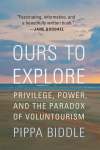
Ours to Explore: Privilege, Power and the Paradox of Voluntourism by Pippa Biddle
This book was absolutely brilliant. It talked about volunteer tourism (where non-specialists go to foreign countries and ‘help’ by building wells or buildings or teaching English.) It very convincingly linked the practice with colonialism, Christian missionary work, and first world privilege. If you’re considering a voluntourism trip this is a must read.
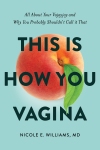
This is How You Vagina by Nicole E. Williams, M.D
I don’t have much to say about this book. It is easy to read, and it is concise. It discusses the anatomy, functions, and health of the vagina. It covers all the major milestones, and how the vagina (and your body) changes. It covers puberty, menstruation, sex, birth, and menopause. As a woman who was born with a vagina, there was surprisingly a lot I didn’t know (did you know that the vagina has way more nerve endings than a penis?). The author talks about healthy habits and answers common questions she gets asked as a practicing gynaecologist. I’d give this book to any teen of mine. It’s got a light-hearted and somewhat humorous style, but the content is serious. The thing that become abundantly clear though reading This is How You Vagina is that there is still so much we don’t even know about this organ, because medical research (*cough* old white men) don’t deem it important enough to study. It’s a whole new frontier girls, and we could be trail blazers!

The Suspicions of Mr. Whicher: Murder and the Undoing of a Great Victorian Detective by Kate Summerscale
This is a fascinating and well researched account of the Murder at Hill House in 1860. It unfolds like a murder mystery, with plenty of suspense; but it is also a tale about the investigation, and the detective who led it. It covers the span of many years, as the original trial did not result in a conviction, although there was a resolution many years later. If you like true crime, or you want to dip your toes in for the first time, then this is the book for you.

How to Be an AntiCapitalist in the 21st Century by Erik Olin Wright
I had a convo with my sister in the supermarket about how capitalism is destructive and exploitative, but when I asked what alternatives there were, she drew a blank, so I found this book. And look, I’m not really that knowledgeable about economics or anything, so the fact I understood what this book was talking about was great. It’s super accessible, and it guides you through the history of capitalism, how it ‘works’, and alternatives to capitalism as both political and economic system.
